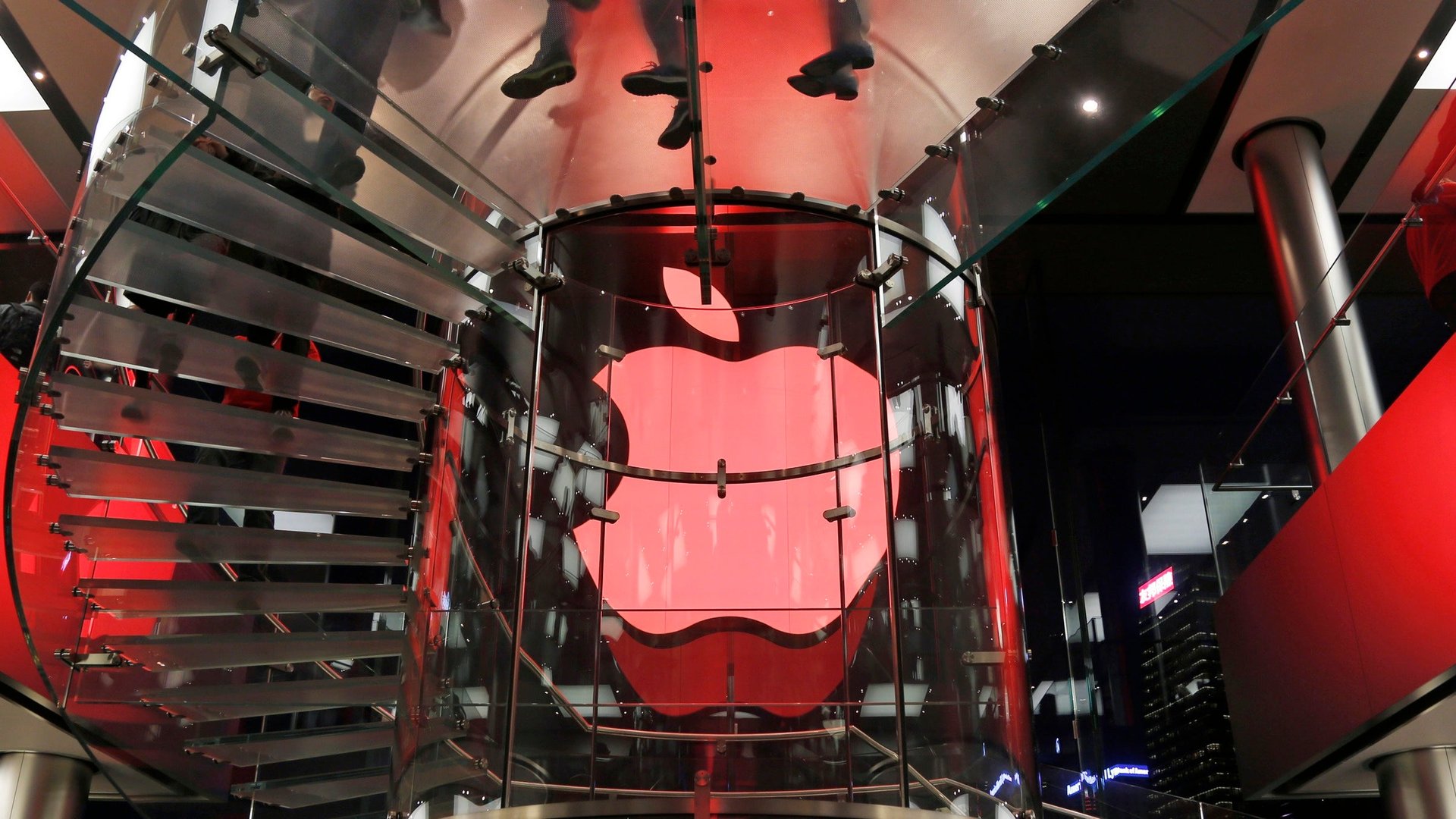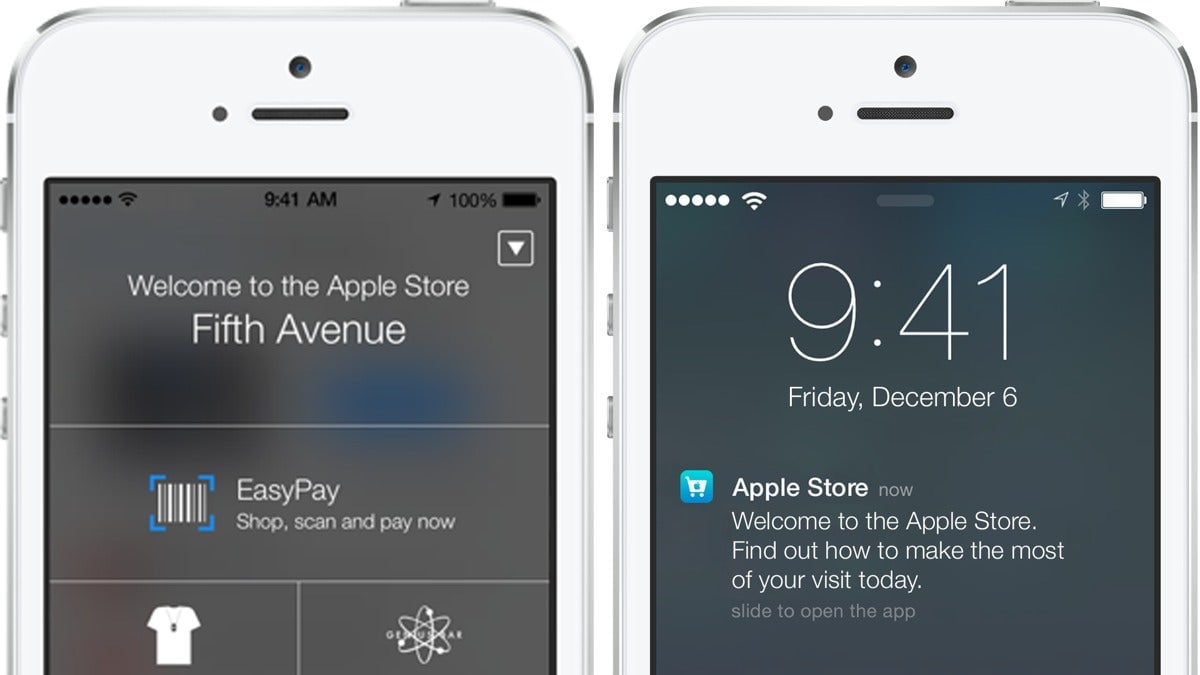Starting today, your iPhone can pester you to buy whatever you’re standing next to
If you own any iPhone more recent than the 4, walk into any US Apple retail store today and you’ll get a taste of the possibly-dystopian future of retail and the internet of things. That’s because Apple just rolled out a technology called iBeacon in all 254 of its US stores, and if you say “yes” to the prompts it will push to your phone when you walk in the front door, it will start sending alerts to your home screen with information and promotions when you’re standing next to pre-designated hotspots.


If you own any iPhone more recent than the 4, walk into any US Apple retail store today and you’ll get a taste of the possibly-dystopian future of retail and the internet of things. That’s because Apple just rolled out a technology called iBeacon in all 254 of its US stores, and if you say “yes” to the prompts it will push to your phone when you walk in the front door, it will start sending alerts to your home screen with information and promotions when you’re standing next to pre-designated hotspots.
For example, if you walk by the table of shiny, new iPhones with your sad, old iPhone in hand, you may get a notification that it’s time to upgrade, along with the chance to check your eligibility for an one.

Here’s how it works: iBeacon allows iPhones to locate their position in space with centimeter precision. It does this by using the phone’s Bluetooth Low Energy radio to listen for the radio-frequency cries of various “beacons” that retailers must place throughout their store. With such a positioning system in place, store owners can designate certain areas in their shops—as small as tens of centimeters across—where actions can be triggered, like sending more information or a promotional offer to a customer’s phone.
Right now companies like Estimote are pitching to retailers the “beacons” that broadcast the signal required to make iBeacon work. And anyone shopping at US department store Macy’s this holiday season can try it out.
It’s easy to be down on this technology—location-based push advertising sounds like both a privacy disaster and a threat to our peace and quiet. And while Apple says it doesn’t store the location data it gathers through iBeacon, it’s not clear how much of this information is accessible to makers of apps that incorporate the technology—for example, whether a retailer can remember that you’ve been to their store before. It’s also unclear whether retailers can use iBeacon to identify you and use that to query their customer databases and pull up your shopping history—some retail chains have, for example, been looking for ways to ID big, loyal spenders when they enter a store and send a sales clerk over to give them VIP treatment. (We’ve asked Apple for comment.)
But Apple is making a longer-term play here, and it’s important to think about where this is going, since this technology could also work on Android and Windows phones, which can “hear” the signals put out by beacons. This could allow Microsoft and Google to piggyback on Apple’s market-shaping power and create their own in-store location systems. Knowing precisely where smartphones—and eventually, other smart objects—are when they are indoors allows us to interact with the “internet of things” just by moving through space and time. Right now that means getting promotions pushed at us, but eventually it will mean interacting with smart homes, buildings and cities simply by moving through them.